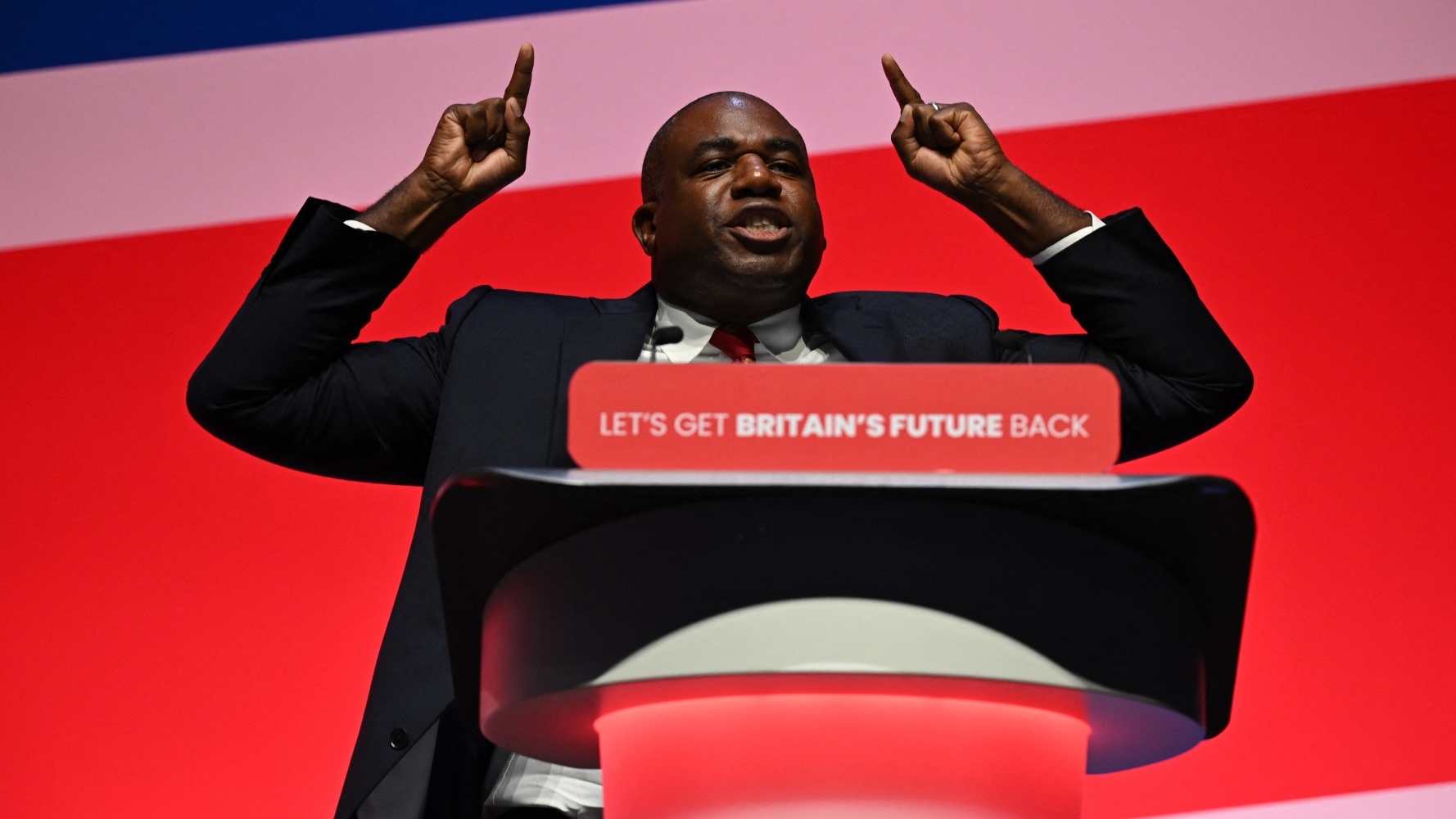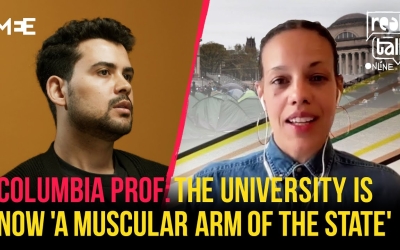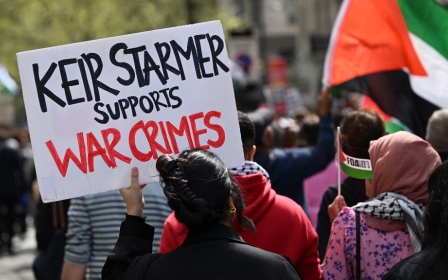UK: Labour's David Lammy suggests Mandela would oppose Gaza student protests

The UK opposition Labour party's shadow foreign secretary, David Lammy, has suggested the late South African President Nelson Mandela would not have agreed with the ongoing protests over Gaza at campuses across the United States.
Lammy, who is likely to become the foreign secretary if Labour win the UK general election held later this year, was speaking to Republicans in Washington about how a Labour government would work with a possible Trump administration.
During the speech, Lammy, who has previously been a fierce critic of Trump, said the UK would find "common cause" with the Republican leader but also touched upon a number of ongoing issues in the world, including Israel's war on Gaza.
On the ongoing largely nonviolent student protests in opposition to the war, Lammy said: "There is a difference between peaceful protest of the kind Mandela would have advocated, and violence and rioting."
Mandela, the leader of the movement against apartheid in South Africa, later became president of the country after the collapse of the system.
New MEE newsletter: Jerusalem Dispatch
Sign up to get the latest insights and analysis on Israel-Palestine, alongside Turkey Unpacked and other MEE newsletters
He spent a total of 27 years in prison and had initially advocated armed resistence against the white supremacist system.
Mandela was also an advocate for Palestinian rights, famously declaring: "We know too well that our freedom is incomplete without the freedom of the Palestinians."
'Ancient' conflict
South Africa has also filed a case against Israel's bloody military campaign against the Palestinian of Gaza at the International Court of Justice, in which it accuses the state of genocide.
More than 34,900 Palestinians have been killed in Gaza since the war began in October. The vast majority of those killed are women and children.

Speaking to the Republican audience, Lammy asked why pro-Palestinian protesters were silent about other crises in the world.
"I am outraged at what is happening to ordinary folk in Sudan, in the Democratic Republic of Congo, in Yemen, in Haiti. Why are we really not up in arms about these issues as well?"
He added: "“I say gently to those who concentrate singly on a very ancient and terrible, terrible war that is taking place in Gaza: but let us not crowd out a lot of people suffering in our world today and underlining that the US and UK have to stand firm on so many fronts today.”
Lammy's comments sparked criticism on social media, with people condemning the shadow foreign secretary for bringing up other issues, which he seems to have barely mentioned before, and his characterisation of the conflict as "ancient".
Writing about the comments on X, Guardian columnist Nesrine Malik said: "Extremely galling to have these people sanctimoniously mention Sudan not getting attention because of Gaza when they know very well it wasn’t getting any attention before Gaza either."
University of Bristol lecturer Fraser McQueen wrote: "Grimly impressive how many misrepresentations [Lammy] fits in here, but to focus on just [one] sentence: there is not a 'very ancient, terrible war in Gaza'. There is a genocide being carried out by a nation-state 6 months older than the King of the UK."
'I am outraged at what is happening to ordinary folk in Sudan, in the Democratic Republic of Congo, in Yemen, in Haiti. Why are we really not up in arms about these issues as well?'
- David Lammy, Labour shadow foreign secretary
The Israeli-Palestinian conflict has its roots in the early 20th century Zionist movement, which sought to create a homeland for Europe's Jews in Palestine in order to escape European antisemitism.
After the Second World War, the UN sought to partition the British Mandate of Palestine between Palestinian Arabs and Jews, but conflict broke out, during which Zionist militias seized most land designated for the Arabs and established the state of Israel in 1948.
More than 700,000 Palestinians were forced to flee, including to Gaza and surrounding Arab countries.
In 1967, Israel conquered the Palestinian territories of East Jerusalem, the West Bank and Gaza, occupying them ever since.
While considered a centrist within Labour, Lammy has often sided with the party's right, especially on foreign policy issues.
He was a supporter of the 2003 invasion of Iraq and a supporter of the Israeli military operation in Gaza.
Early in Israel's military operation in Gaza, Lammy refused to distance himself from party leader Keir Starmer's support for a siege on the Palestinian territory, which blocked the entry of food, water and electricity to its residents.
Middle East Eye delivers independent and unrivalled coverage and analysis of the Middle East, North Africa and beyond. To learn more about republishing this content and the associated fees, please fill out this form. More about MEE can be found here.




